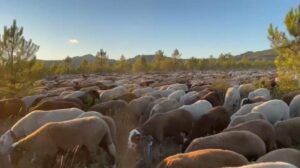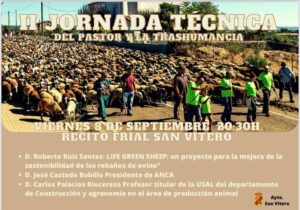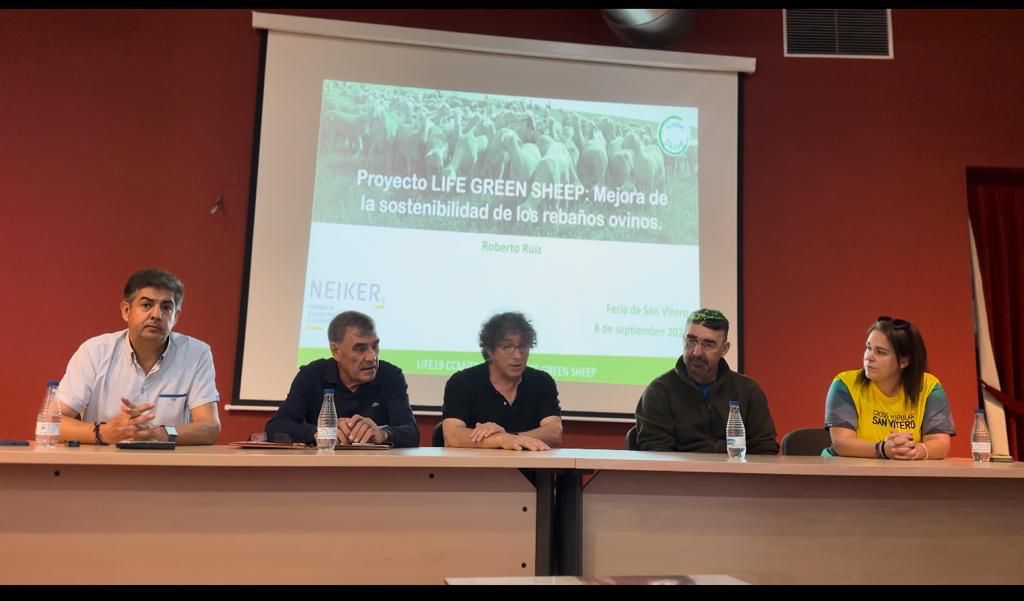The seventh edition of the Shepherd and Transhumance Fair took place in San Vitero (Zamora) from the 8th to the 10th of September 2003. It started with the II Technical Talk aimed at the sector, and featured around twenty activities. This year, San Vitero hosted some of the experts in the sector to bring to the farmers and producers the advantages of the “Life Green Sheep” project to improve the sustainability of sheep flocks. This activity served as an opening curtain for a Fair that has already established itself as one of the great defenders of this age-old modality.
The Life Green Sheep project involves the participation of five European countries: France, Ireland, Italy, Romania and Spain, which account for 47% and 63% of sheep meat and milk production in the EU respectively. Its main objective is to make progress in reducing the carbon footprint generated by the sheep meat and milk sector by up to 12%, guaranteeing the sustainability of the farms.
A project that seeks results in 5 years’ time and which envisages the creation of an EU observatory on environmental and sustainability performance, as well as the evaluation of the environmental and sustainability performance of a sample of farms (known as innovative farms), development and promotion of low-carbon farms by demonstrating the feasibility of action levers in real conditions.
The conference was led by the head of the project at NEIKER (Basque Institute for Agricultural Research), Roberto Ruiz, who was accompanied by the president of ANCA, José Castedo Bobillo and Carlos Palacios Riocerezo, professor of the USAL of the Department of Construction and Agronomy in the area of animal production.



